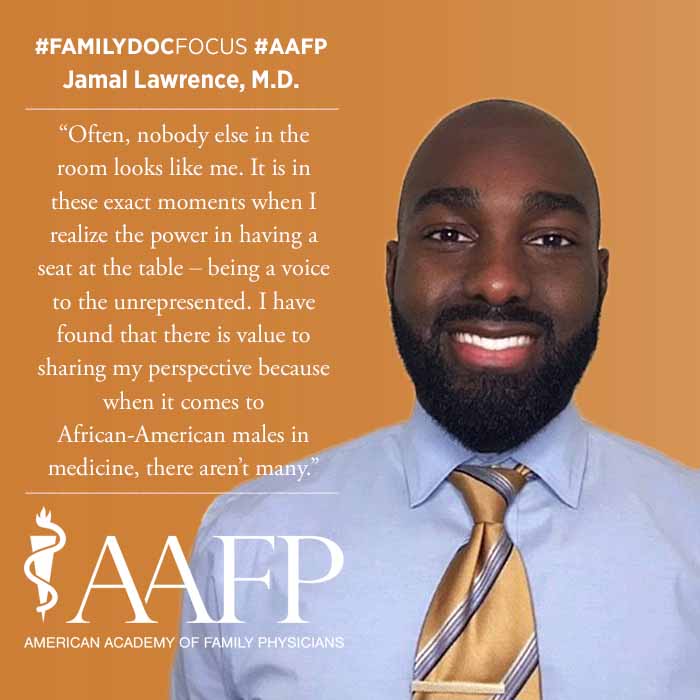Resident Is Already an Agent of Change
March 25, 2019 12:21 pm David Mitchell – As a kid, Jamal Lawrence, M.D., always wanted to be a physician. When asked if he would do anything else, he would reply, "social activist."
As a family doctor, Lawrence intends to be both.
The third-year family medicine resident will soon complete his training at the Memorial Health University Medical Center in Savannah, Ga. Lawrence doesn't know where his next stop will be, but he plans to continue his commitment to mentorship, leadership and community service.
"You have to find your purpose and understand how you can use your gifts to improve the lives of those around you," he said. "Wherever I go, I will be an agent of change in the community."
One career path Lawrence is considering for the future is academia. Research has shown that diversity in the health care workforce influences patient outcomes, but although a little more than 12 percent of the overall U.S. population is black, only 4 percent of the nation's physicians are black. Among medical students, black women outnumber black men nearly two to one. "One reason to consider academic medicine," Lawrence said, "is to show others they can do it, too."
Lawrence isn't shy about offering his insights.
"Often, nobody else in the room looks like me," he said. "It is in these exact moments when I realize the power in having a seat at the table -- being a voice to the unrepresented. I have found that there is value to sharing my perspective because when it comes to African-American males in medicine, there aren't many."
Lawrence was a leader in his medical school's branch of the Student National Medical Association, serving as a secretary and vice president, and has pursued other leadership opportunities with the AAFP as a resident. He currently serves as a coach for the Primary Care Leadership Collaborative -- an effort of the AAFP, Family Medicine for America's Health and Primary Care Progress to increase student leadership and engagement in primary care. In that project, Lawrence worked with family medicine interest group (FMIG) leaders to help them develop programs to address local needs related to workforce diversity and increasing student choice in primary care.
"We had such good traction and outcomes," he said. "We were able to advance it from a pilot to an actual program. It's very progressive."
(The deadline for FMIGs to apply for the collaborative's 2019-21 cycle is April 1.)
Meanwhile, Lawrence and his wife, Shanice Lawrence, M.P.A., have done grassroots organizing to address health equity in their own community.
"My wife organized The Blessing Bag Workshop event, where we packed small bags in New York and handed them out to the homeless in the subway," he said. "When I went to residency, we continued that here."
Lawrence said the couple distributes the bags, which contain toiletries, nonperishable snacks and clothing, once a quarter.
The couple is also in the midst of working with the Department of Family Medicine at the Mercer University School of Medicine to raise money for the Tiny House Project led by the Chatham Savannah Authority for the Homeless. The authority already has begun construction of a 72-unit neighborhood that will provide affordable ($240 a month) housing for homeless people, giving priority to veterans.
The Lawrences and Mercer hope to raise funds for two of those units, or about $20,000.
"As
I continue to cultivate my leadership skills, I intend to serve not
only the patients I see in the exam room, but also the community at
large."
